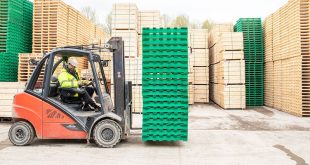To cherish what remains of the Earth and to foster its renewal is our only legitimate hope of survival.
So, we have the long-awaited RHI. The Renewable Heat Initiative. And like the poor old curate, I’m a bit of disappointed with it in parts.
The RHI: designed, one would assume, to encourage people to install renewable heating appliances rather than continue to rely upon fossil fuels.
Which I suppose it does, in a way. But a very round-about, long-winded way. Still, Heaven forbid this Government should do anything that’s not overly-complicated.
The RHI announcement is welcome, but, said one industry observer, it doesn’t feel like a game changer in that it still leaves more questions than answers for the domestic sector.
Ah yes. The domestic sector. That’ll be the sector that probably accounts for more carbon emissions in heating than any other. It’s certainly the one that the government needs to win over if it is to get anywhere with hitting its emission-cutting targets.
The domestic sector- the one that is going to have to wait until it gets any payback for installing renewable technologies until the Green Deal kicks in next October.
Although there will, of course, be these interim payment thingies, to ensure that people aren’t so put off the whole renewable thing by the delays that they decide not to bother. People who have proved that they are entitled to the interim premium payment will then be eligible for the tariffs proper when the second phase of the RHI gets going – alongside the Green Deal. Confused? Yes, so am I.
I suppose looking at it from one point of view, it makes sense to start with the commercial and industrial sectors as they are likely to be larger installations, carried out by larger commercial contracting companies who are the ones with the wherewithal to get themselves trained and accredited so that their work is eligible for the tariffs. I assume that the Government’s thinking is that tariff payments for this kind of installation would be rather more simple to administer in the short-term than lots of individual claims for bio-mass boilers in three-bedroomed semis.
Yet it’s those people already living in the two, three and four bedroomed family properties that are going to have to buy into the renewables market if it is really going to take off. And for these people, any investment in their homes has to make solid financial sense – plain old saving the planet just doesn’t cut the mustard when it comes to forking out for new, complicated systems.
There simply isn’t enough information for the general populous about how such systems work, whether they can work with existing systems and how much money they can save.
Which I guess is Chris Huhne’s point – why risk throwing taxpayers’ money at a system until you understand a bit more about what the take-up is likely to be. I just can’t help thinking that an opportunity is there for the losing.
It’s certainly true that we need to reduce our reliance on fossil fuels somehow. And, as the awful events in Japan this weekend have shown us, we probably don’t want to be too reliant on nuclear either.
 Builders Merchants Journal – BMJ Publishing to Builders Merchants and the UK merchanting industry for more than 95 years
Builders Merchants Journal – BMJ Publishing to Builders Merchants and the UK merchanting industry for more than 95 years



